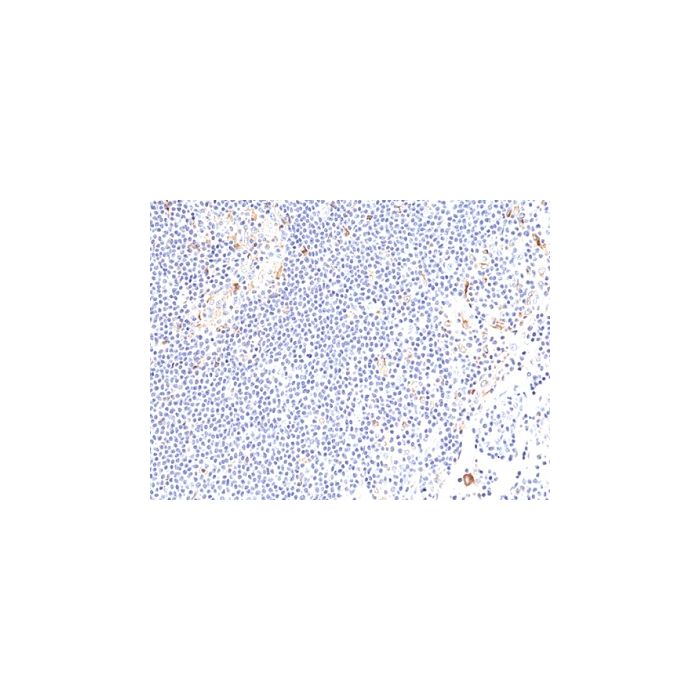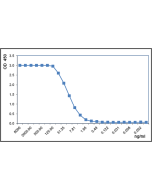Cookie Policy: This site uses cookies to improve your experience. You can find out more about our use of cookies in our Privacy Policy. By continuing to browse this site you agree to our use of cookies.
RevMab
anti-CD137 (4-1BB), Rabbit Monoclonal (RM471)
As low as
477
CHF
CHF 477.00
In stock
Only %1 left
REV-31-1363-00-R100100 µlCHF 477.00

Figure 1: Immunohistochemical staining of formalin fixed and paraffin embedded Hodgkin's lymphoma tissue sections using Anti-CD137 antibody (RM471) at 1:100 dilution.
| Product Details | |
|---|---|
| Synonyms | Tumor Necrosis Factor Receptor Superfamily Member 9; TNFRSF9 |
| Product Type | Recombinant Antibody |
| Properties | |
| Clone | RM471 |
| Isotype | Rabbit IgG |
| Source/Host | Rabbit |
| Immunogen/Antigen | Recombinant protein of CD137 extracellular domain. |
| Application |
IHC: 1:100 - 1:200 Flow Cytometry: 1:5 - 1:50 WB: 1:500 - 1:2000 |
| Crossreactivity | Human |
| Specificity |
RM471 reacts to human CD137 (4-1BB). |
| Purity | Protein A purified. |
| Purity Detail | Protein A affinity purified from an animal origin-free culture supernatant. |
| Formulation | Liquid. 50% Glycerol/PBS with 1% BSA and 0.09% sodium azide. |
| Isotype Negative Control | |
| Other Product Data |
Click here for Original Manufacturer Product Datasheet |
| Accession Number | Q07011 |
| Declaration | Manufactured by RevMab Biosciences. |
| Shipping and Handling | |
| Shipping | BLUE ICE |
| Long Term Storage | -20°C |
| Handling Advice | Avoid freeze/thaw cycles. |
| Use/Stability | Stable for at least 1 year after receipt when stored at -20°C. |
| Documents | |
| Product Specification Sheet | |
| Datasheet |
 Download PDF Download PDF |
Description
CD137 is a member of the tumor necrosis factor (TNF) receptor family. CD137 is expressed by activated T cells, dendritic cells, NK cells, granulocytes and cells of blood vessel walls at sites of inflammation. CD137 has costimulatory activity for activated T cells. Crosslinking of CD137 enhances T cell proliferation, IL-2 secretion survival and cytolytic activity. CD137 was shown to enhance immune activity to eliminate tumors in mice.







